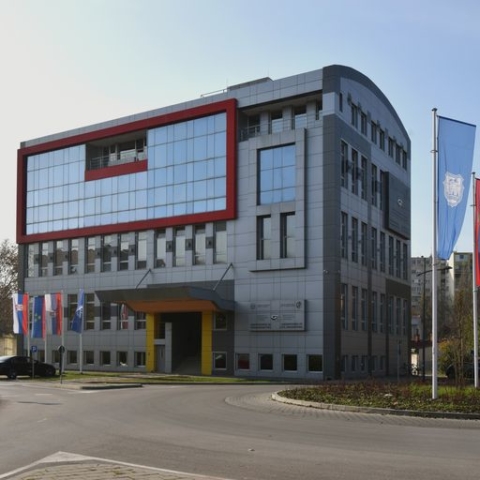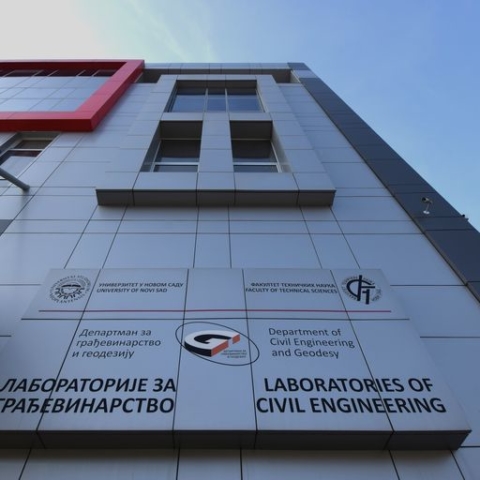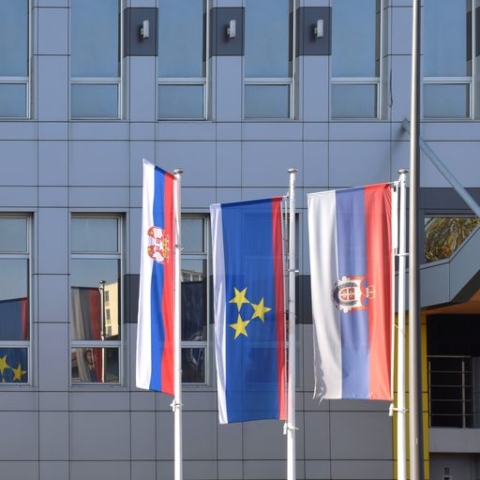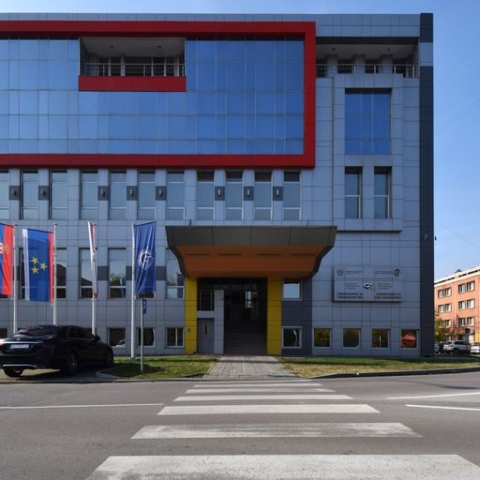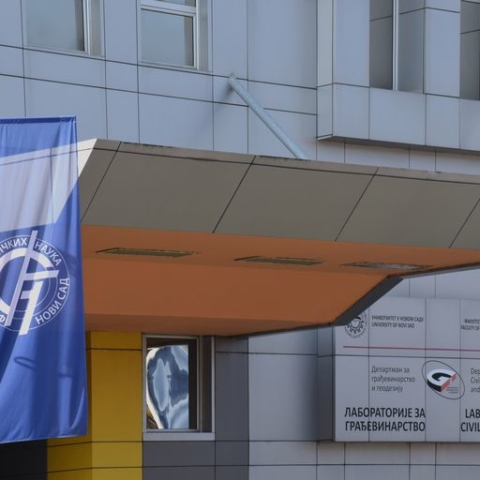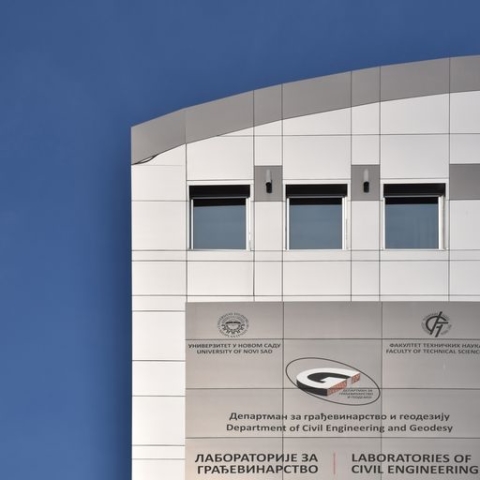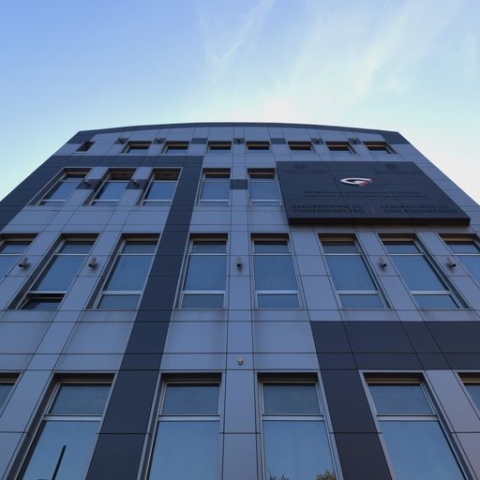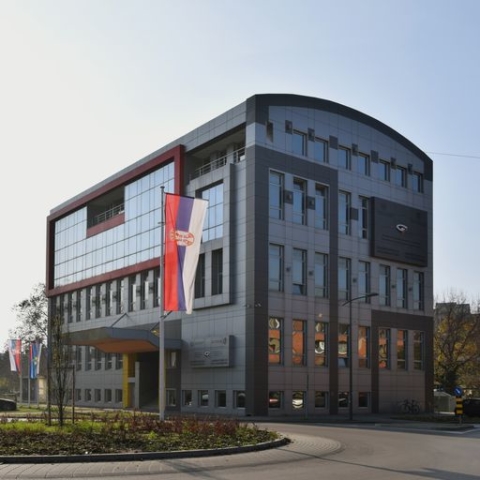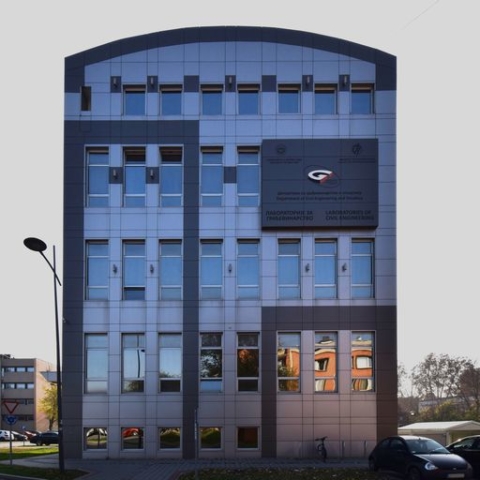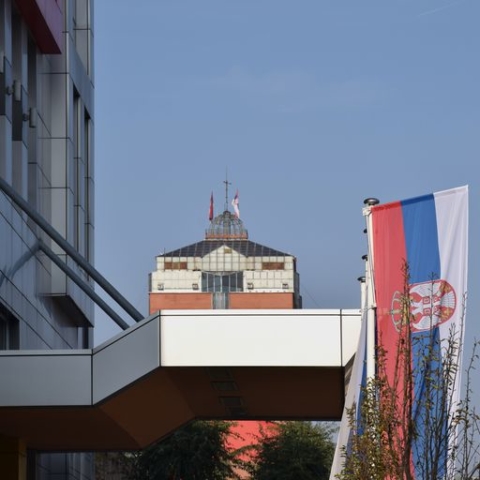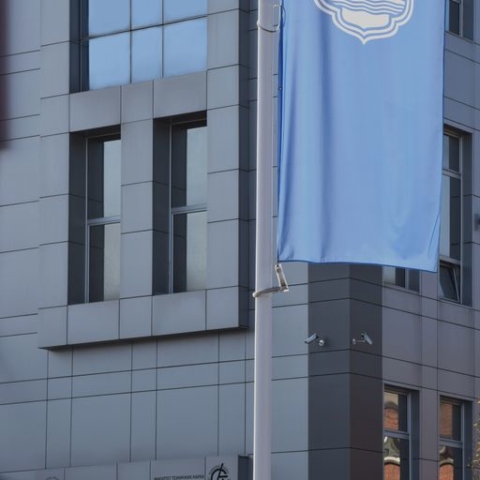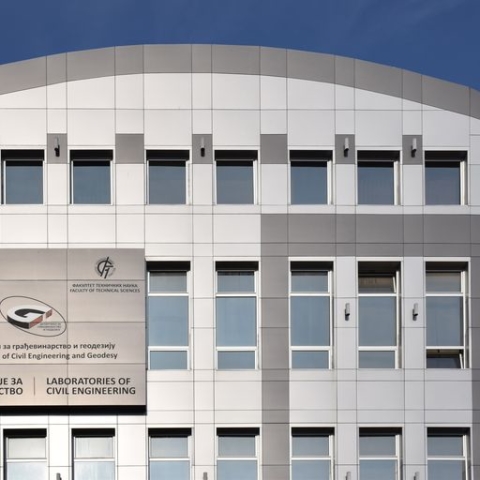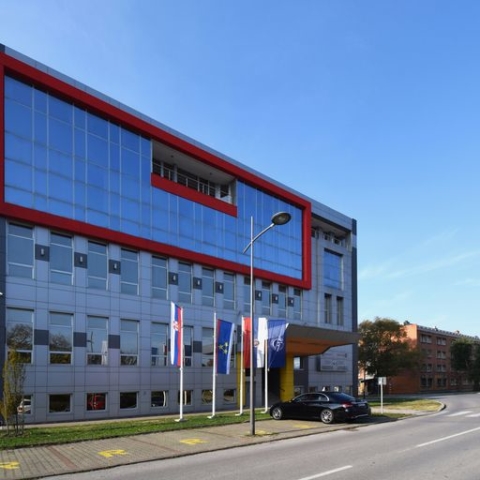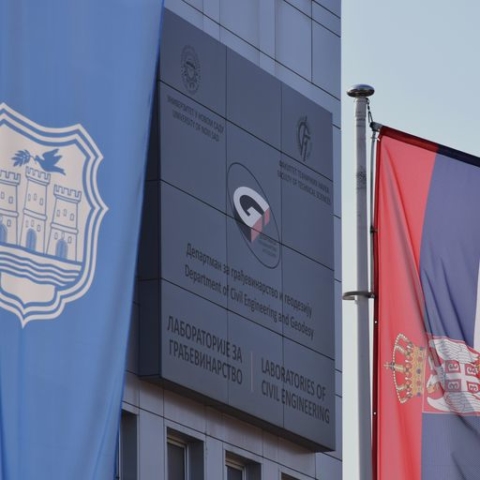Department of Civil Engineering and Geodesy
About the Department of Civil Engineering and Geodesy
The Department of Civil Engineering and Geodesy is one of 13 departments at the Faculty of Technical Sciences in Novi Sad. The Department was founded in 1971 and since has been one of the most important centres for education and research in the field of civil engineering in the region. Over the past 50 years, the names and contents of study programs have been changed and new ones have been introduced. The latest study programmes in the fields of Civil Engineering, Geodesy and Geoinformatics, and Disaster Risk Management and Fire Safety were accredited in 2020, and they are taught at all three academic levels (undergraduate, master and doctoral academic studies). The teaching activities take place in the Department building (“Laboratories for Civil Engineering and Geodesy”), as well as at the Faculty of Technical Sciences Main building.
The Department has significant research activity and collaborations with industrial partners and other institutions in the development and application of new technologies and methods, being active in providing professional services in the field of civil engineering and geodesy. This collaboration with industry partners and other institutions allows students to gain practical experience and apply the knowledge gained during their studies.
Infrastructure (laboratories…)
The Department manages the following laboratories:
- Building Materials Testing Laboratory,
- Structures Testing Laboratory,
- Laboratory for Numerical Structural Analysis,
- Geomechanics Laboratory,
- Hydrotechnics Laboratory,
- Geodesy Laboratory.
The Building Materials Testing Laboratory provides an opportunity for undergraduate academic students of Civil Engineering, Architecture, and Disaster Risk Management and Fire Safety to learn more about traditional and modern building materials and their properties through work in the laboratory. In addition, master academic civil engineering students have at their disposal equipment for in-situ testing of concrete and masonry structures, which enables them to gain the first engineering experience in the field of durability and condition assessment of the structures.
The Structures Testing Laboratory of the Department of Civil Engineering and Geodesy has a long-standing tradition in testing structures, structural assemblies and structural elements by test load. The first tests with a test load within the laboratory were performed in 1989 on the structural system of the roof of the production hall of the company “Čelik” in Bački Jarak. In the following years, the Structures Testing Laboratory acquired the reputation of an eminent centre for this type of work and proved that status in all subsequent work assignments. The laboratory has complete equipment for testing the bridges according to the standard SRPS U.M1.046 and the building constructions according to the standard SRPS U.M1.047.
The Laboratory for Numerical Structural Analysis has a group of structural analysis software packages available to employees and students of all levels of study, among which are:
- AxisVM,
- Tower,
- GstarCAD,
- GstarConcrete,
- CYPE,
- ProtaStructure,
- ARCHLine.XP,
- STRAKON,
- Aplitop,
- Spatial Manager.
The Geomechanics Laboratory was founded in 1980 at the former Machine Parts Factory (MPF). Now in the new building of the Department of Civil Engineering, the following most important tests can be performed on modern equipment that is also used in classes: field testing of the mechanical penetration, testing and control of soil compaction, direct shear test, oedometer test, triaxial compression test, etc.
In the Hydrotechnics Laboratory, there are modern hydraulic instruments for the needs of exercises in experimental hydraulics (hydraulic channel model, device for testing the hydrostatic condition of the liquid, Venturi tube, well model, flow model under and through the embankment) and a laboratory setup for the installation of water supply and sewerage with all the accompanying devices. The equipment was installed in 2014 and is in use for experimental exercises in the subjects of the basics of hydromechanics and hydrotechnics, hydraulics, and municipal hydrotechnics, for students of hydrotechnics.
The primary goal of the Geodesy Laboratory is education and support for teaching processes in the field of geodesy at all levels of study. The activities in which the resources of the laboratory are engaged relate to the education of students, scientific research work and cooperation with the economy. Student education is primarily focused on training students for fieldwork and processing collected data, all with the aim of solving practical problems. Within the laboratory, students are trained to use the most modern geodetic equipment and process collected data using sophisticated software solutions, where they acquire valuable knowledge that follows technological development in the field of geodesy, and which are applicable in solving various engineering problems that they will encounter in practice.
International cooperation with other faculties and institutions on which the department relies on
As part of the scientific research work at the Department of Civil Engineering and Geodesy, from its establishment until 2007, more than 50 scientific research projects were implemented in nine scientific research areas (Theory of structures, Constructions in Civil Engineering, Organization and Building Technology, Construction management, Materials in civil engineering and concrete technology, Hydrotechnics, Geotechnics, Geodesy and Roads).
In accordance with modern developments and trends in science, today’s scientific research work is developed in thirteen areas: Theory of structures, Constructions in civil engineering, Geotechnics, Traffic paths, Organization and building technology and management, Building Engineering, Architectural technology, design and installations, Building materials, assessment and repair of structures, Energy efficiency in buildings, Hydrotechnics, Treatment, regulation and protection of water, Geodesy, and Disaster risk management and fire safety.
Complex research is carried out in the laboratories, the results of which are introduced into modern civil engineering practice or are the basis for theoretical analyses during the preparation of doctoral dissertations. From its foundation until today, more than 60 doctoral dissertations have been defended at the Department of Civil Engineering and Geodesy.
In the period from 2008 to 2020, the members of the Department were involved in 19 national and 15 international projects. Especially in the last five years, there has been intense international cooperation with colleagues from universities in the region, as well as with other European and world institutions, which resulted in accepted and successfully implemented international projects financed from European funds. As a result of the commitment of teachers and associates at the Department of Civil Engineering and Geodesy to scientific research work, a large number of papers were published in scientific journals and conferences, whereby, according to the number of papers published in international journals on the SCI list and the number of citations, the Department is recognized as one of the leading scientific institutions in the field of civil engineering.
In the period from 2017 to 2020, more than 40 guest lectures by eminent professors from universities in the region and Europe were organized, as well as more than 20 trainings and guest lectures at partner institutions, carried out by professors and assistants from the Department. The Department of Civil Engineering and Geodesy is the organizer of the traditional international conference “INDIS – Planning, Design, Construction and Building Renewal”, which has been held continuously since 1976. This year, the 16th in a row, the Conference will be held on 16-17. November on Fruška Gora within the Hotel Fruške Terme.
